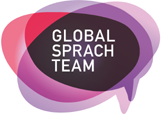Translating, like most professional fields, is full of niche areas. How and why do translators choose to specialise? What are the benefits and risks for translators and clients alike? And what areas of specialisation is GST particularly interested in? Keep reading to find out.
Choosing to specialise
Most translators have to specialise in some form or other. Even the very best “generalist” can’t offer expert translations in fields as diverse as engineering, medicine, marketing, law, and finance. Indeed, even within these fields, differentiation is often required: Corporate law is very different from criminal law, the language of everyday accounting a long way from the terminology of stocks and shares and global markets.
Expertise as background or goal?
An obvious reason why translators are drawn to a particular area of expertise is because they already have a background in it. Not infrequently, translators come to the profession after gaining experience in a different field altogether. They might have studied biology, engineering, or history of art, maybe even worked in one of these areas in a foreign language.
Alternatively, specialisation might be based on demand. A classically trained musician may be perfectly suited to translating an orchestra’s concert programmes, but is unlikely to make a living from such commissions alone. In that case, it can be wise to supplement one specialisation with another where demand is consistently high.
Ideally, specialisation should tally with interests. If someone gives up their job as an accountant because they hate it, committing to a future as a translator in finance might not be the wisest idea. But if a translator is passionate about ecology, then gaining expertise in the world of environmentally friendly technologies could be an excellent decision: a growth industry that also chimes with personal values.
However, interest and ability don’t always go hand in hand. This is why translators should experiment to see where their strengths lie – they might be surprised by what they discover about themselves.
The benefits of specialisation
The benefits translators get from specialising are clear:
- – it helps them to stand out from the crowd,
- – it allows them to pitch for work in a more targeted manner, and
- – ultimately, their level of expertise should help to cut down on research and make translating more efficient, a major factor when freelance work is often paid by the word or line.
But what are the benefits for companies and agencies? Primarily:
- – peace of mind, knowing they can count on correct terminology
- – having go-to experts for certain topics helps to ensure consistency and continuity, which is very important in terms of, for example, corporate language.
On the surface, it seems like a win-win situation. But all parties also need to be aware of potential pitfalls.
Don’t put all your eggs in one basket
While specialisation is often beneficial and to some degree unavoidable, translators as well as companies and agencies are advised to keep their options open.
If a translator specialises too narrowly, they could have problems if commissions in this field dry up unexpectedly, which can easily happen. For example, translators or interpreters who specialise in tourism or event-based work are unlikely to have had a stellar 2020.
Likewise, if an agency or company relies too heavily on one or two translators for certain fields, they can encounter difficulties if these translators move on or retire or for whatever reason start to turn down jobs.
As so often in the modern world of work, flexibility and a willingness to learn and evolve are key.
Not forgetting the most important thing – language
With all this talk of expertise, it’s important to remember that the product of translation is language. By no means is it essential for a translator to have a professional background in their specialist area, and translating complex texts well is not to be confused with expertise in a subject itself.
For example, a surgeon may be capable of performing intricate operations, but without sufficient knowledge of the source or target language, a translation about “their” topic could still pose a problem. Research, and the desire and ability to learn, can make someone a better translator in a particular field than another person who worked in the area but writes sloppily.
This, too, needs to be borne in mind by both agencies and clients.
GST and specialisation
Alongside core areas such as intellectual property and education, GST and its pool of in-house and freelance translators can draw on expertise in a wide range of complex areas. We’re always interested in working with new translators who have the right balance of specialist knowledge and linguistic talent in order to provide optimal translations for our diverse client base.
(N.B., 2021)
To what degree does your line of work depend on specialisation? What did you think of this article? Let us know on Twitter!




